Turkey stays out of the Nagorno-Karabakh peace process
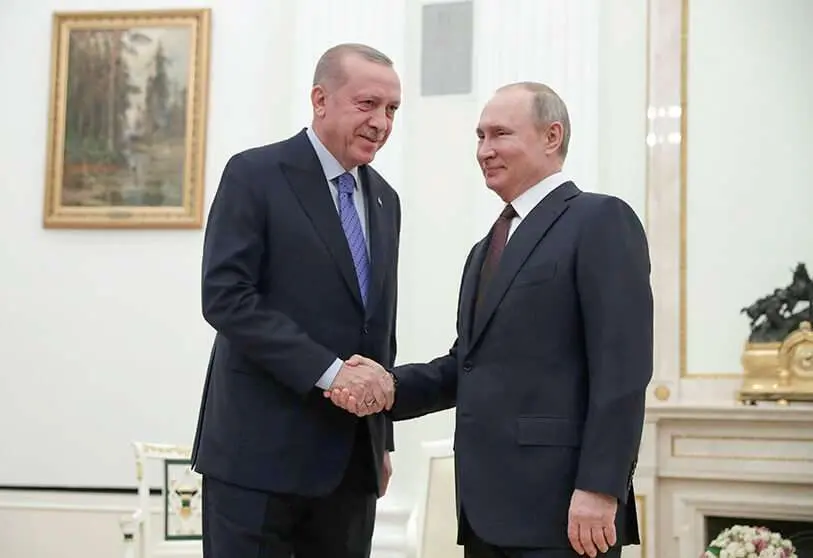
The controversy over whether or not Turkey will be present in the monitoring of the peace process in Nagorno-Karabakh has gone around the world. The Turkish president, Recep Tayyip Erdogan, has closed himself off from Azerbaijan to participate in the process. However, from Russia, President Vladimir Putin has denied Turkey's participation in these actions.
Russia has insisted yesterday on several occasions that there will be no Turkish participation in the Russian contingent of peace forces that is being deployed on the line of contact in Nagorno-Karabakh after the agreement signed between Armenia and Azerbaijan to end the war in this territory.
"There will be no Turkish peacekeeping units deployed in Nagorno-Karabakh. There is a clear provision on this in the joint statement of the leaders" of Azerbaijan, Armenia and Russia on the cessation of hostilities in this area, Russian Foreign Minister Sergey Lavrov said today.
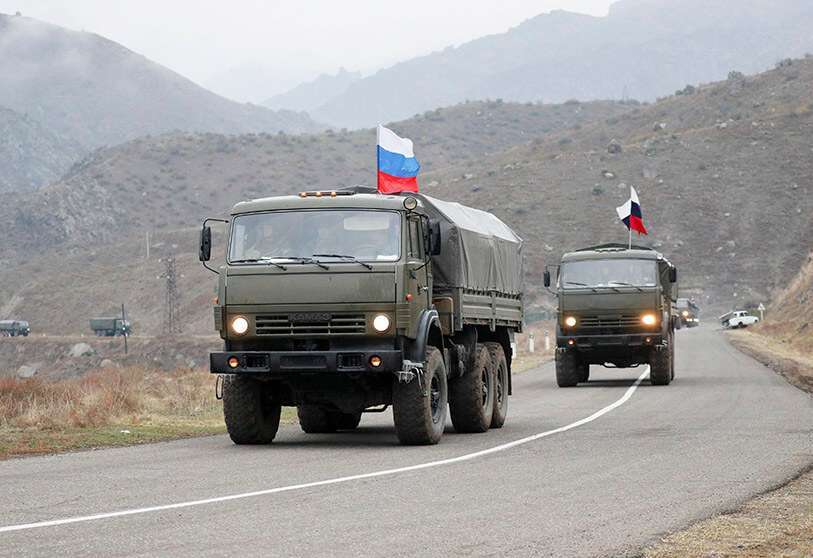
The Turkish government, for its part, said that an agreement was signed with Russia on Wednesday evening to establish a mechanism or control centre on Azerbaijani territory to monitor the ceasefire. Specifically Turkey confirmed that the role of its country "will be the same as that of Russia".
The Russian peace troops have already arrived in Nagorno-Karabakh. Only yesterday it was announced that the Russian peacekeepers arrived in Stepanakert, the capital of Nagorno-Karabakh. "The peacekeeper battalion of the motorised Brigade 15 arrived in the town of Stepanakert after a forced march," said the spokesman of the martial entity, Igor Konashenkov, at a press conference.
According to the Ministry of Defence representative, "10 observation posts were set up along the entire line of contact of the parties in Nagorno-Karabakh and in the Lachin corridor", and the contingent's advance units have already begun to carry out their mission in the enclave.
Returning to the discussion on whether Turkey will take part in the peace negotiations in the Caucasus, a Russian delegation will arrive today, Friday, in Ankara to discuss the details of this cooperation, the Turkish Foreign Minister Mevlüt Çavusoglu said yesterday from Baku, Azerbaijan.
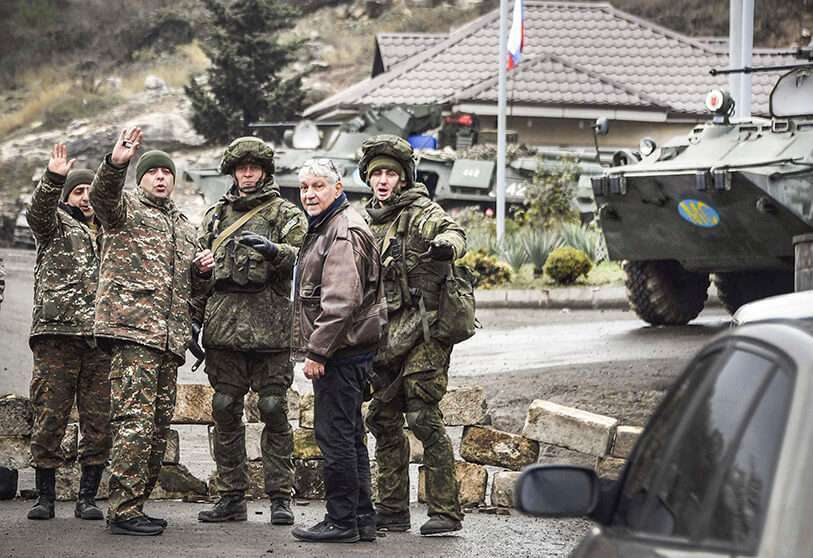
Lavrov specified that the mobility of the Turkish observers will be limited to the perimeter of the eastern centre, outside Nagorno-Karabakh. "The movement of the Turkish observers will be limited to the geographical coordinates that will be determined by the deployment of the future Russian-Turkish monitoring centre," the head of Russian diplomacy said.
The Kremlin attributed the confusion to a "possible misunderstanding". "Our understanding is that Russian forces will serve as peacekeepers and are already being deployed on the line of contact. And the interaction with Turkish soldiers will be done through a monitoring centre on Azeri territory," its spokesman Dmitri Peskov said at his daily press conference.
Since last Tuesday, when the agreement between Yerevan and Baku was signed under the mediation of Russian President Vladimir Putin, Russia has already sent more than 750 soldiers of the 1960s peace contingent to Karabakh.

Peskov stressed that the peacekeeping forces and the ceasefire control centre are two different things, and stressed that Turkish participation in peacekeeping "cannot be a subject of discussion only between Moscow and Ankara, but that the opposing parties have to give their consent".
The question of Turkish participation in peacekeeping in Nagorno-Karabakh was first mentioned by Azerbaijani President Ilham Aliev in his address to the nation on Tuesday after signing the tripartite peace agreement with Armenian Prime Minister Nikol Pashinian and Russian leader Vladimir Putin.
The document, negotiated without the participation of the United States and France, the other co-chairmen of the Minsk Group for the settlement of the conflict together with Russia, stipulates the establishment of a "peace force centre" to control the ceasefire, but makes no mention of Turkey.
Lavrov pointed out that Russia in no way wishes to distance itself from its Minsk Group colleagues and stressed that representatives from Washington and Paris will be arriving in Moscow in the coming weeks to discuss the implementation of the peace agreement.
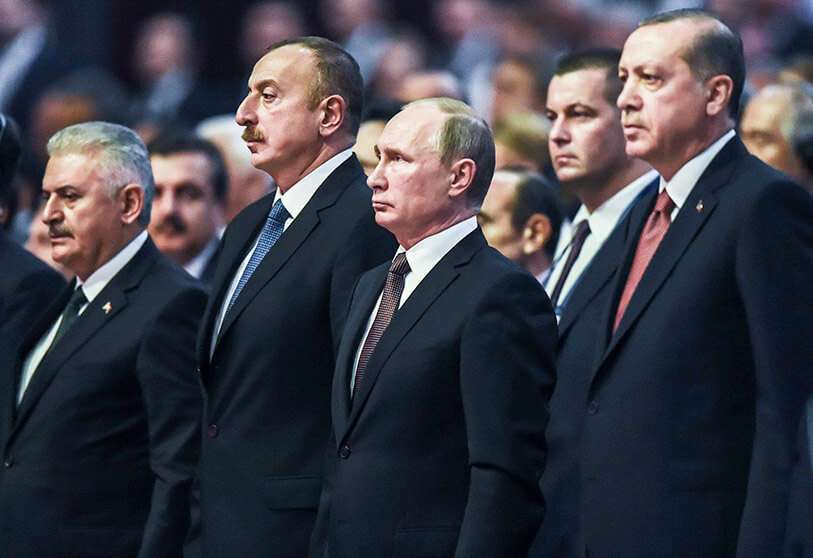
The Russian government has published the full text of the declaration on the cessation of the war in Nagorno-Karabakh which relates points similar to those already discussed in the Madrid Accords of 2009, when the Minsk Group tried to resolve the conflict before it became deadlocked again.
The first point announces a complete ceasefire and the cessation of all hostilities in the area of the Nagorno-Karabakh conflict. This also means that both Azerbaijan and Armenia are holding on to their current positions without advancing or retreating. During the second point it has been agreed that the district of Agdam must be returned to Azerbaijan before 20 November 2020.
The third point centres the prominence of peace on the Soviet neighbour. "A Russian peacekeeping contingent will be deployed along the line of contact in Nagorno-Karabakh and along the Lachin corridor, including 1,960 military personnel with small arms, 90 armoured personnel carriers, as well as 380 automobile units and special equipment," the document reads.
The Russian peacekeeping contingent will be deployed in parallel with the withdrawal of the armed forces from Armenia. This is stated in the fourth point of the agreement which provides for a period of military deployment of five years which will be automatically extended for a further five years if neither party declares its intention to terminate the application of this provision.
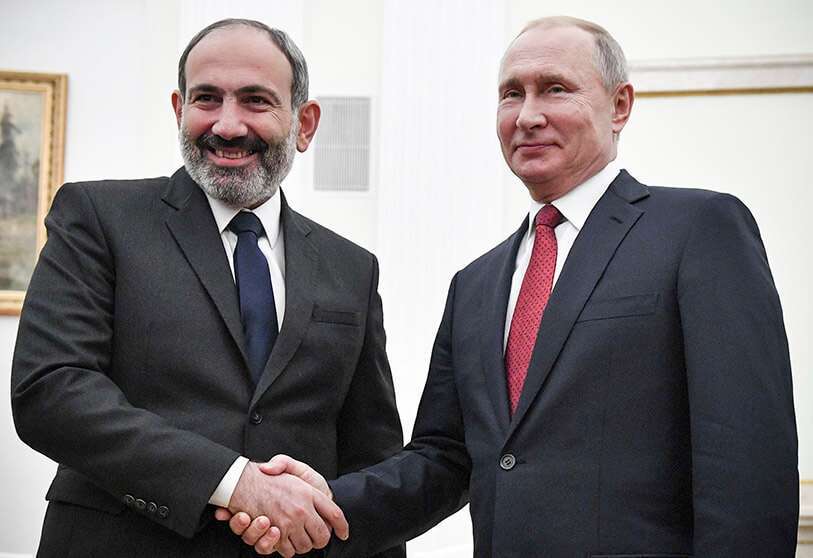
The fifth point of the agreement also provides for the establishment of a peacekeeping centre to monitor the ceasefire. "This will increase the effectiveness of monitoring the implementation of the agreements by the parties to the conflict", the Russian document explains.
Point number six of the agreement has taken its toll on Armenia and, consequently, on Prime Minister Pashinián. "Armenia will return the Kalbajar region to Azerbaijan before 15 November and the Lachin region before 1 December. This has led to numerous protests in the streets of Armenia, the demonstrators have even reached the parliament and the first thing they have asked for is the resignation of the prime minister.
The Lachin corridor is 5 kilometres wide and will ensure the connection between Nagorno-Karabakh and Armenia and at the same time will not include the city of Shushi. This city will remain under the control of the Russian peacekeeping contingent.
By agreement between the parties, a plan for the construction of a new route along the Lachin corridor will be determined within the next three years, which will ensure communication between Nagorno-Karabakh and Armenia, with the subsequent redeployment of the Russian peacekeeping contingent to protect this route. Azerbaijan, for its part, will ensure the safety of traffic of citizens, vehicles and goods along the Lachin corridor in both directions.
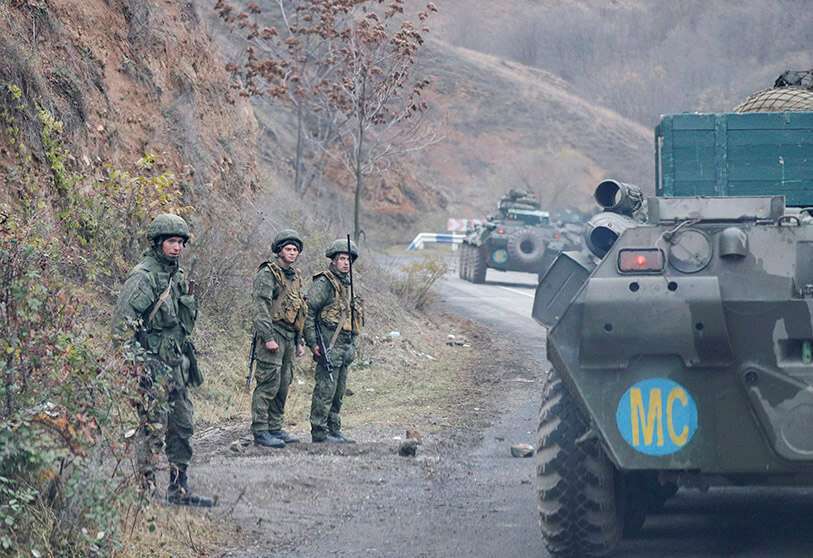
Point number seven of the agreement focuses on civilian casualties and displaced persons. All those who wish to return to the territory of Nagorno-Karabakh and adjacent areas will be able to do so under the control of the Office of the United Nations High Commissioner for Refugees (UNHCR).
The penultimate point talks of a clear exchange of prisoners of war, hostages and detainees, as well as the bodies of those killed during the fighting. And finally, "all economic and transport links in the region will be unblocked".
Armenia guarantees the security of transport connections between the western regions of Azerbaijan and the Autonomous Republic of Artsaj in order to organise the unhindered movement of citizens, vehicles and goods in both directions. The control of transport, they recalled, "is carried out by the bodies of the Border Service of the Russian Federal Security Service (FSB)".
Both sides have undertaken to rebuild the new communications between Nagorno-Karabakh and the Azeri state, which have been out of contact since they declared themselves independent and swore allegiance to Armenia.








